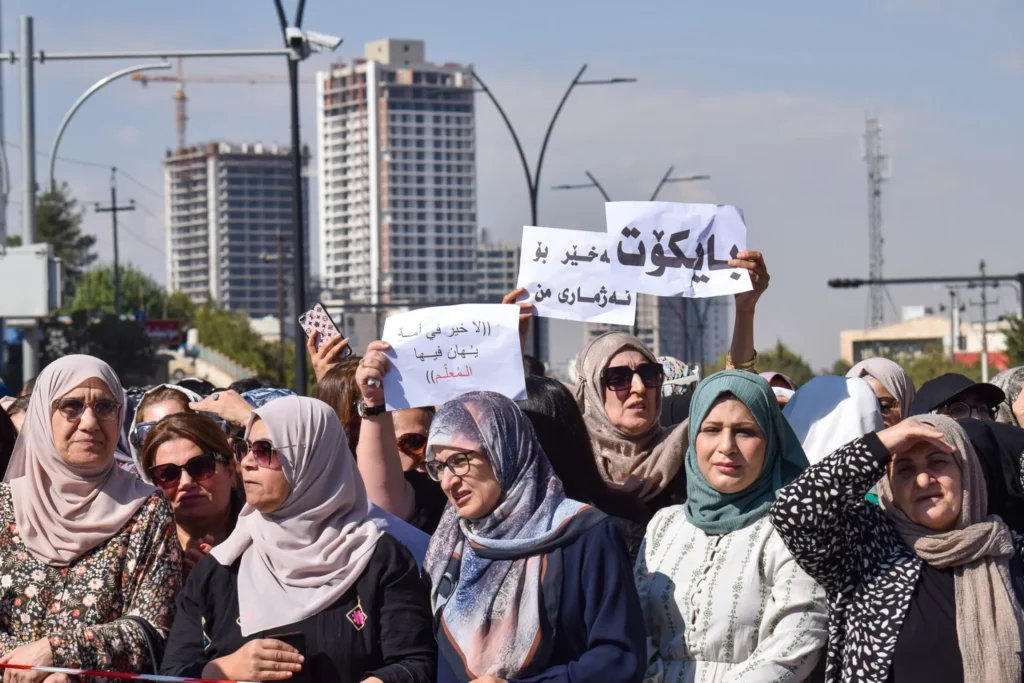The Kurdistan Region of Iraq is leading an ambitious movement to revive its Education Revolution system, offering a hopeful model for broader educational reform across the country. After decades of conflict, instability, and economic hardship, Iraq’s education system has struggled to recover. Yet, in the north, the Kurdistan Regional Government (KRG) is working hard to rebuild and modernize its schools, universities, and vocational institutions.
This new vision for education is not only about new buildings and updated textbooks—it is about preparing a generation of young Iraqis to drive the country’s future.
A Broken System in Urgent Need of Change
Iraq once boasted one of the strongest education systems in the Middle East. In the 1970s and early 1980s, literacy rates were high, and Iraq’s universities attracted students from across the region. However, years of war, international sanctions, political instability, and violent conflict took a devastating toll.
The Iran-Iraq War, the Gulf War, the 2003 invasion of Iraq, and the rise of ISIS shattered much of the country’s educational infrastructure. Schools were destroyed or fell into disrepair, teachers fled or were killed, and children—especially girls—were often unable to attend school safely.
Today, nearly 60 percent of Iraq’s population is under the age of 25, but many young people lack access to quality education. Without urgent reforms, Iraq risks facing a “lost generation” with few prospects for employment or meaningful participation in society.
Kurdistan’s New Vision: A Comprehensive Plan
Recognizing the importance of education for the region’s social and economic future, the KRG has launched a bold and comprehensive strategy, known as Vision 2030, to transform education across Kurdistan. The plan focuses on three major pillars: quality, access, and inclusivity.

Curriculum and Textbook Modernization
One of the first steps the KRG has taken is to update the region’s curriculum. Over 400 textbooks have been revised across subjects, including Kurdish, Arabic, English, and religious studies. The new books feature modern, engaging content and incorporate interactive elements like QR codes, allowing students to access additional learning resources through smartphones and tablets.
By making learning more interactive and up-to-date, the KRG hopes to move away from rote memorization and promote critical thinking skills that are essential in today’s global economy.
Building and Renovating Schools
Infrastructure is another major focus. In recent years, the KRG has constructed nearly 200 new schools and renovated over 1,500 existing ones. Many schools that once operated three shifts a day due to overcrowding are now able to return to a normal schedule, offering students a better, less rushed educational experience.
The addition of new classrooms, science labs, libraries, and sports facilities is not only improving the quality of education but also making school a more welcoming environment where students want to learn.
Teacher Recruitment and Professional Development
Teachers are the heart of any education system. To address shortages and improve quality, the KRG has hired over 40,000 teachers on permanent contracts. Additionally, there is a strong focus on ongoing teacher training to ensure that educators are prepared to deliver modern, student-centered instruction.
Digital training platforms have been launched to provide teachers with professional development opportunities, allowing them to continuously upgrade their skills.
Education for All: Promoting Inclusivity
A major achievement of the KRG’s education reform has been its effort to promote inclusivity, ensuring that no student is left behind. Special programs have helped reintegrate over 26,000 students who had previously dropped out of school, including many displaced by war or survivors of ISIS atrocities.
Children from Syrian refugee families have also been welcomed into Kurdish schools. The government has developed policies to accommodate these students and help them integrate successfully into the education system.
Such efforts are not only humanitarian but also essential for building a more peaceful and stable society.
Raising Standards: A Focus on Quality Assurance
Another critical aspect of the KRG’s strategy is the establishment of the Kurdistan Accrediting Association for Education (KAAE). This new body is responsible for setting and enforcing educational standards across the region.
By creating an independent accreditation system, Kurdistan aims to ensure that schools and universities meet international benchmarks for quality and accountability. This will also help prepare Kurdish students to compete in global markets and foster trust among parents, employers, and international partners.
Collaboration with international organizations, including those from Europe and North America, is helping to bring global best practices into Kurdistan’s education system.
Embracing Sustainability and Technology
The KRG is also making education more sustainable. Many schools are now being equipped with solar energy systems, reducing costs and teaching students the importance of environmental stewardship.
At the same time, technology is being integrated into the classroom. Students and teachers are using digital tools to enhance learning, whether through online resources, digital assessments, or remote learning platforms.
Such investments will help prepare students for a future where digital literacy is as essential as reading and writing.
A Model for Iraq’s Future
While challenges remain—including political instability, economic hardship, and security concerns—the progress in Kurdistan shows what is possible with vision, planning, and commitment.
Kurdistan’s education revival offers valuable lessons for the rest of Iraq. By focusing on quality, inclusivity, sustainability, and international cooperation, the KRG is creating a model of education that can inspire reforms nationwide.
Investing in education is not just about building schools. It is about building futures. It is about ensuring that the next generation of Iraqis can grow up with the skills, knowledge, and hope they need to rebuild their country and shape a better future.



